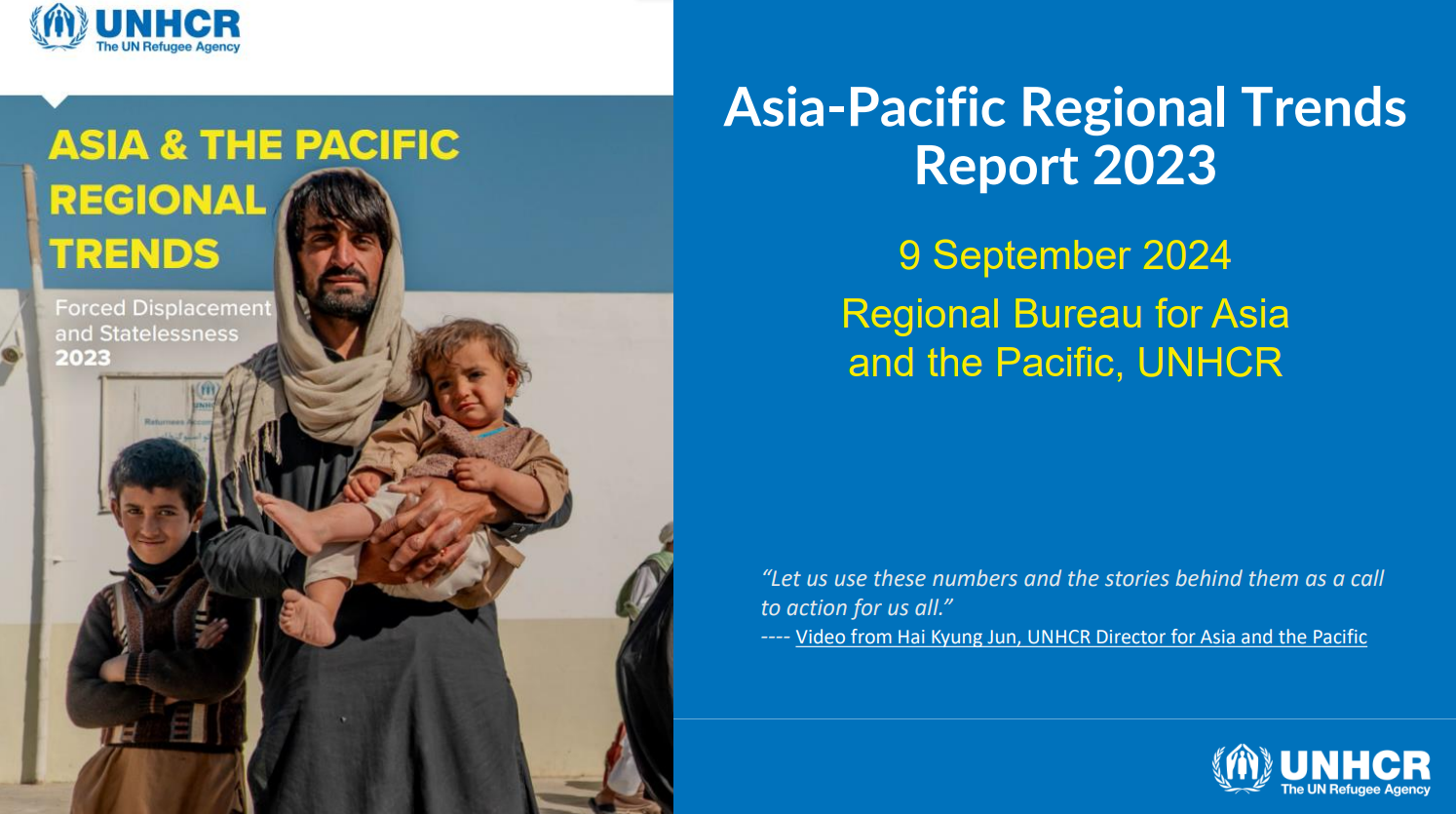9th September 2024
The UNHCR Regional Bureau for Asia and the Pacific (RBAP), in collaboration with the UN Economic and Social Commission for Asia and the Pacific (ESCAP), organised on the 9th of September a session focused on forced displacement and statelessness at the Asia-Pacific Stats Café series. This initiative offers countries a platform to share their knowledge and experiences related to National Statistical Systems, covering a wide range of topics in official statistics and highlighting developments from the region and beyond.
An EGRISS member, the National Statistical Office of Thailand presented their experiences with national surveys and population and housing censuses, particularly in collecting and analysing data on forcibly displaced and stateless people. In the country’s upcoming 2025 Population and Housing Census, informed by the International Recommendations on Statelessness Statistics, stateless people will be included and categorised. This census will prioritise the use of digital platforms, allowing respondents to complete the questionnaire online. Representatives from Statistics Indonesia also shared preparation for the Intercensal Survey (SUPAS 2025), which will include forcibly displaced and stateless people. The survey results will be used to inform or the 2030 population census, to ensure it accurately and completely captures the entire population.
The event began with an overview and updated trends in population statistics related to forced displacement and statelessness in the Asia-Pacific region. It was highlighted that by the end of 2023, the total number of people who are forcibly displaced, stateless, returnees, or similar in Asia and the Pacific stood at 15.7 million, marking a 10 percent increase from the end of 2022. The region hosts 20 percent of the world’s refugees and asylum-seekers, and 57 percent of the world’s estimated stateless population.
The Q&A session focused on the challenges and lessons learned in the statistical inclusion of forcibly displaced and stateless people in national surveys and censuses. Detailed materials can be found at UN ESCAP Stats Café.

